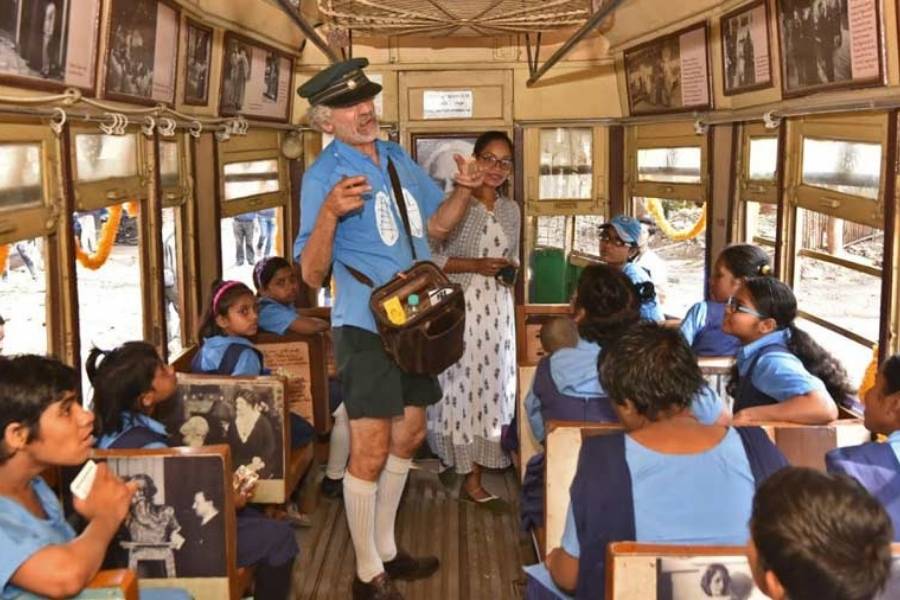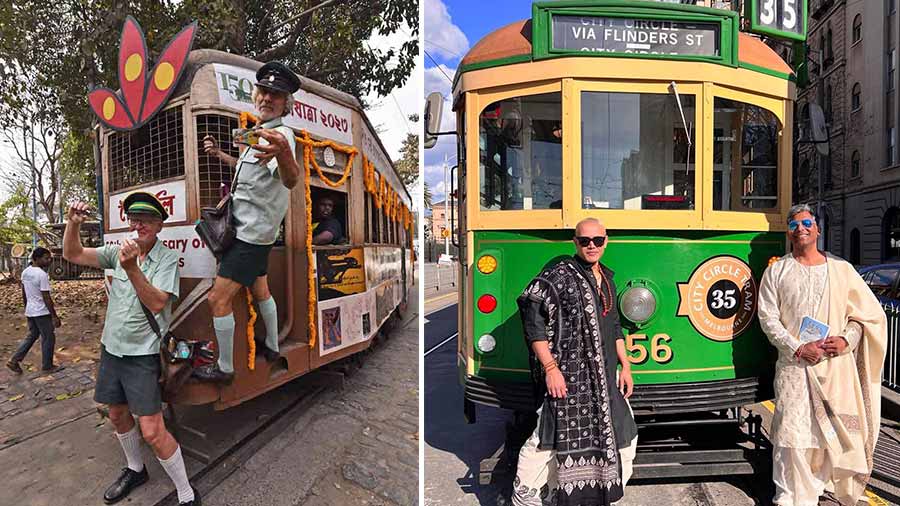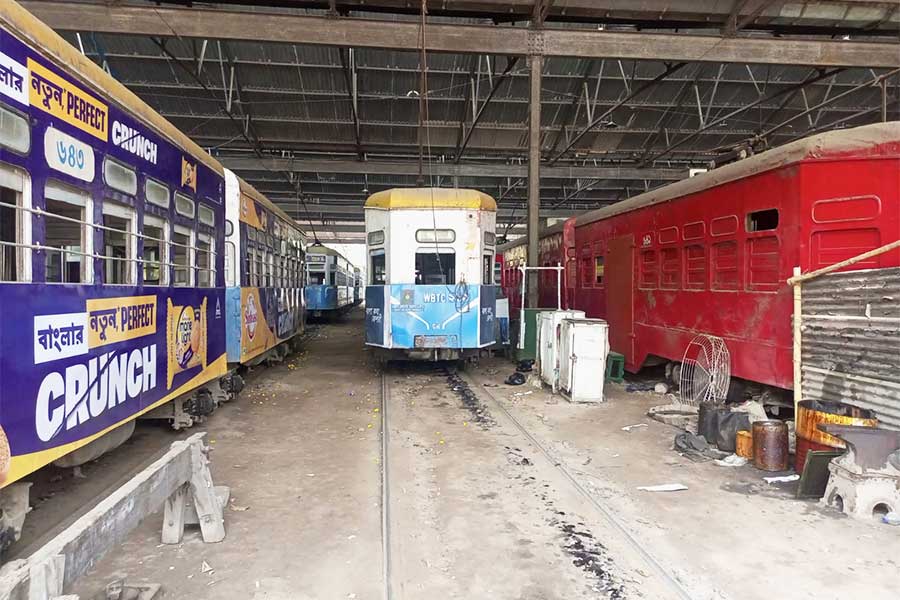In 1996, with the Jyoti Basu-led left front government at the helm, few environment and tram enthusiasts from Kolkata and Melbourne initiated the Kolkata-Melbourne Tramjatra festival; officially to celebrate the tram lineage of the two cities, but, covertly, to fan support for the Kolkata streetcars as the then-state government dropped broad hints to close down the tram network in the city.
Three decades down the line, with the Trinamool government announcing its decision to close down the city’s oldest public transport system, the same group of enthusiasts, in a last ditch effort to save trams, are going to organise another round of Tramjatra from March 28-31 to highlight the key role of trams as an environment-friendly transport.
The regional climate security, particularly that of Kolkata and the Sunderbans — a world heritage site — will also be highlighted in the context of saving trams during the Sunderban Tramjatra, shared Mahadeb Shi, the co-curator of the programme and a filmmaker.
“We do not know whether there will be another Tramjatra in the future. If trams are no longer in the city, then what will be the meaning of another Tramjatra? Hence it can be seen as a last-ditch effort to push the agenda of trams’ survival in this climate impacted world,” quipped the environmentalist.
Seeking global attention
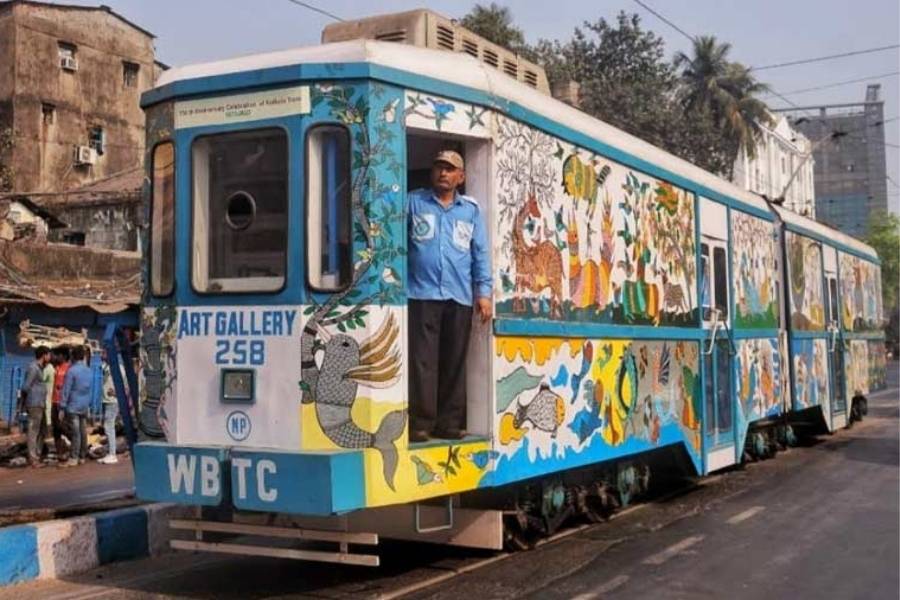
A decorated tram at Tramjatra 2023 Soumyajit Dey
“The Sunderban Tramjatra will provide a platform to talk about both the climate threat faced by the Sunderbans and Kolkata, and the future of the tram,” observed Shi. The activist raised questions about the government’s effort to tag trams as heritage transport in Kolkata, while it has come back strongly as an effective public transport mode in more than 400 cities; and hoped that the festival will add weight to such crucial questions.
“The Sunderban Tramjatra continues to help grow the friendship between Australia and India, West Bengal and Victoria, Kolkata and Melbourne — with colourful trams, informative tickets celebrating biodiversity, and strengthening the human-to-human connection,” opined Roberto D’Andrea, co-curator of the festival and a former tram conductor from Melbourne.
Roberto has been the main driver behind the movement since he jumped aboard a Kolkata tram in 1995, got struck by the similarities with the trams back home, and forged the tram friendship.
“The injustice of climate change is confronting,” said Mick Douglas, another co-curating artist of the festival and a professor at RMIT University in Melbourne. “While listening and learning from the Sunderbans and Kolkata situation, we are hoping to provoke global citizens to bear witness to the challenges here, and pressure societies to act justly and promptly with informed awareness. Art can change hearts and minds where credible science has been unable to,” said Douglas.
Festival features
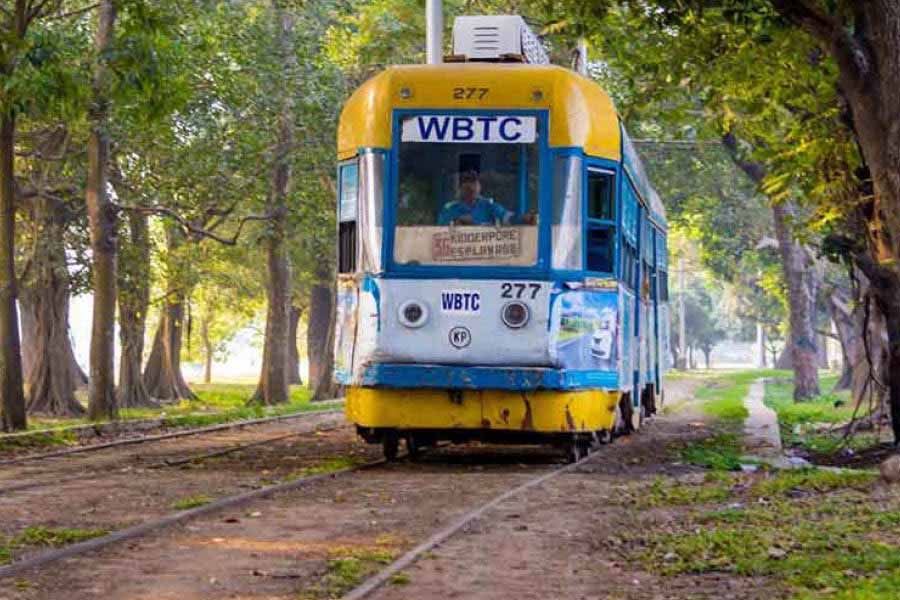
A festival-special tram, highlighting the spirit of the Sunderbans, will run between Shyambazar and Gariahat via Esplanade from March 28 to 30 TT Archives
A festival tram, highlighting the spirit of the Sunderbans, will run between Shyambazar and Gariahat via Esplanade from March 28 to 30, where the rides will be free and specially prepared tickets will be shared as souvenirs, informed the organisers. D’Andrea and others will engage in discussions with the passengers aboard about the issues under the scanner.
In addition, there will be on-ground events like community workshops, cultural programmes and discussions amongst citizens to be held adjacent to the Esplanade Tram Terminus — which is being turned into a festival hub. Artists from the Sunderbans will be brought in to perform cultural and musical programmes.
The four-day festival will conclude with a dialogue among experts and eminent citizens, focussing on the impending climate crisis in the Sunderbans and Kolkata, as well as the possible role of trams in the process, scheduled to be held on March 31, from 4.30pm to 9pm at ICCR Rabindranath Tagore Centre, Satyajit Ray Auditorium.
“We are expecting a string of experts and citizens to participate in the programme, and plan to come up with a Kolkata declaration on the agenda if possible,” pointed out Shi.
According to the environmentalist, the likes of environment researcher Anumita Roychowdhury from Delhi-based environment thinktank CSE; Bhargav Maitra, a transport expert and professor from IIT Kharagpur; former MP and bureaucrat Jawhar Sircar; eminent doctor and orator Kunal Sarkar; Sunderbans expert Tuhin Ghosh from Jadavpur University; environment activist Banani Kakkar, among others, have confirmed their participation. Sanjay Vashist, director of Climate Action Network South Asia, is also likely to join the panel discussion.
The Sunderban Tramjatra project is supported by the Australian government through a cultural grant administered by the Centre for Australia India Relations, and RMIT University.
